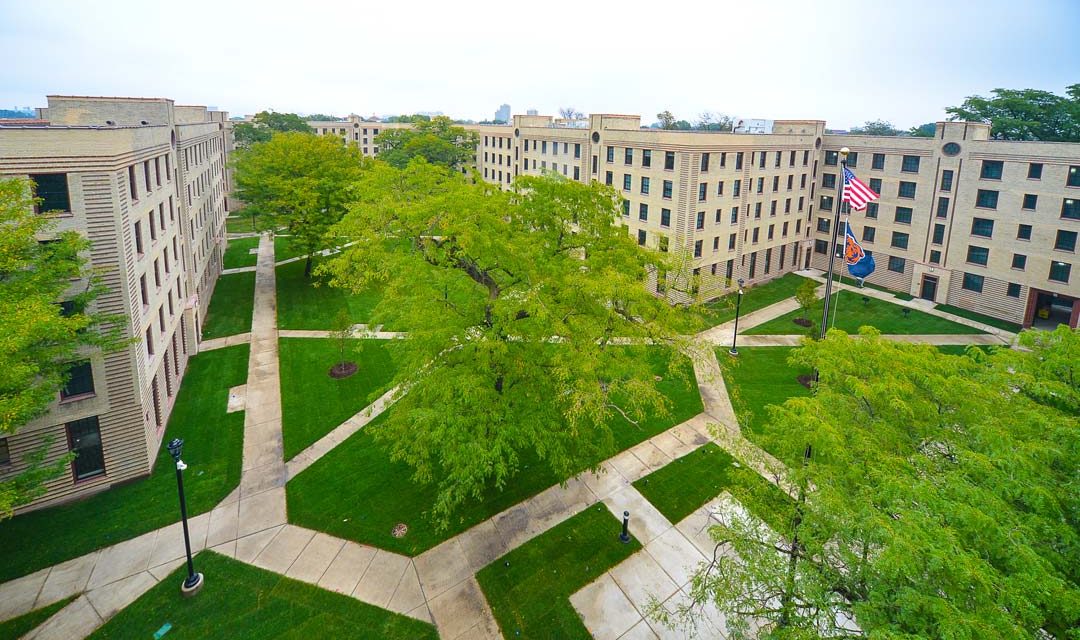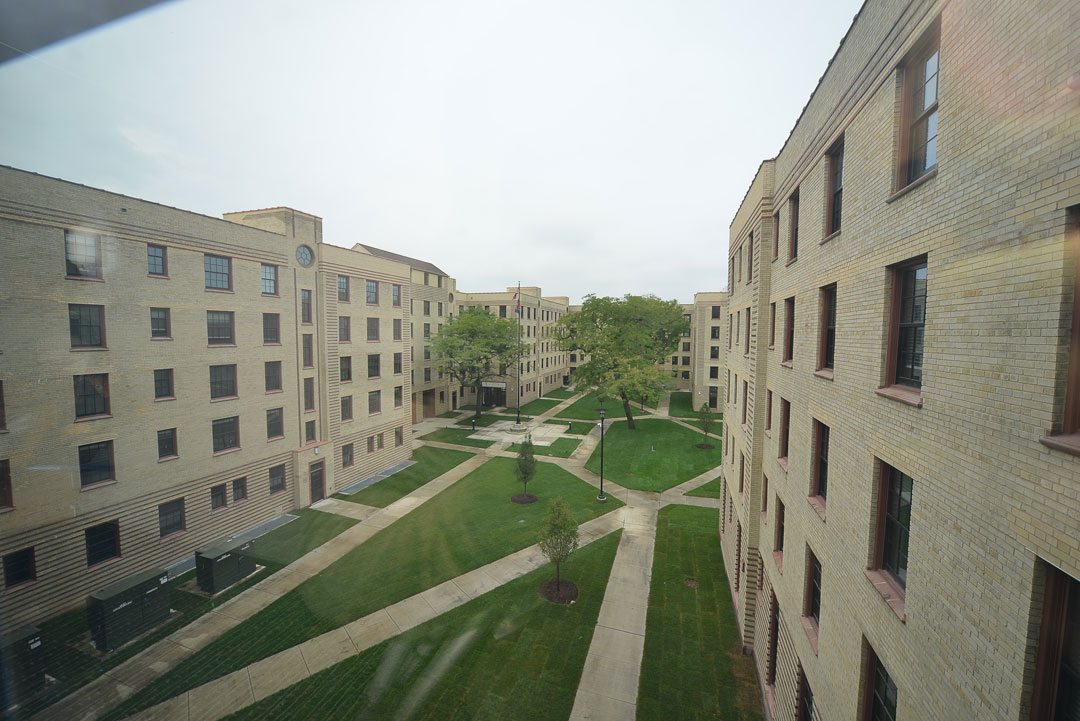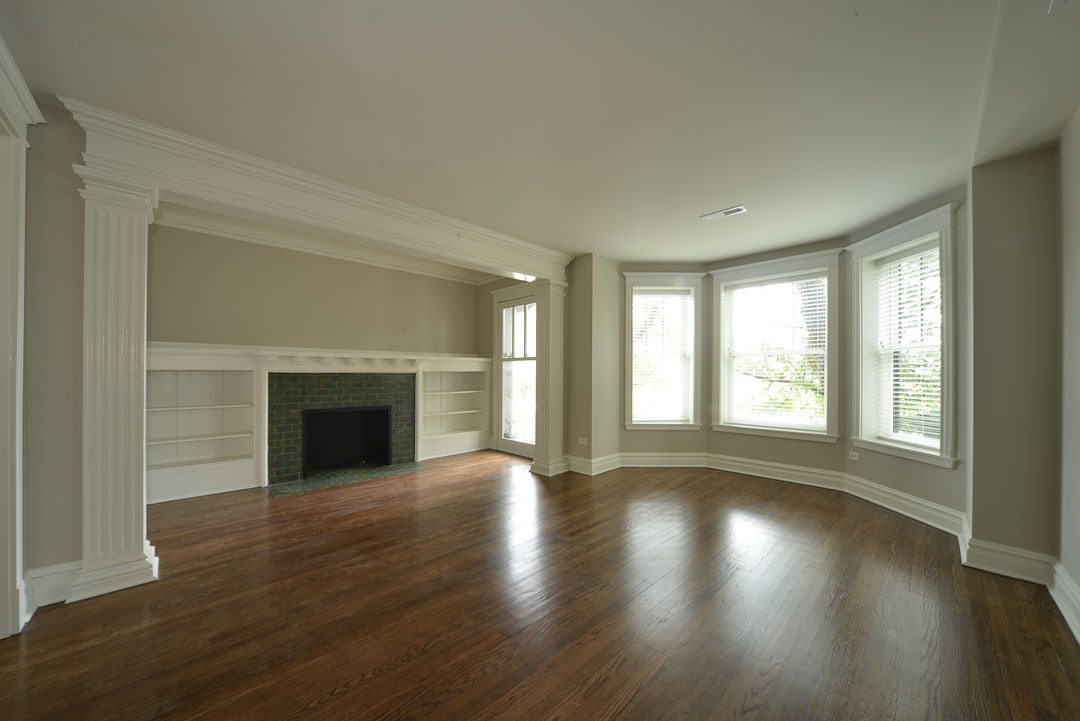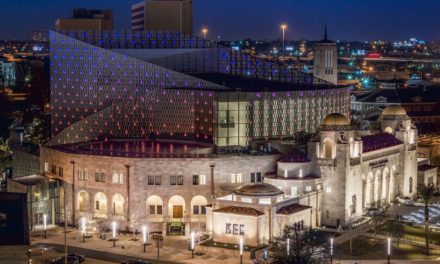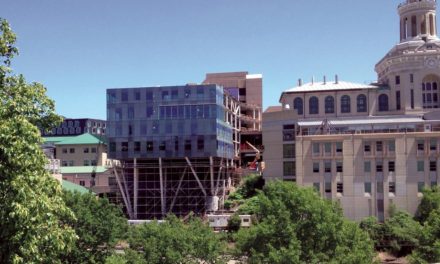Nearly 400 community members and local officials came together when the rich and historic past of Rosenwald Courts met its present day rebirth in Bronzeville on September 30th. Mayor Rahm Emanuel, and Ald. Pat Dowell (3rd) cut the ribbon for the grand opening of Rosenwald Courts.
Emanuel said nearly a century ago, the former Michigan Boulevard Garden Apartment building was a “beacon of the south side of Chicago,” but saw increasing deterioration in the last 15 years. “I’ve done a lot of ribbon cutting, folks, and this is a big turnout,” Emanuel said. “It reflects something that touches all of us. We’re standing on the shoulders of greatness.”
Rosenwald Court Developers with strong support from the City of Chicago and the Chicago Housing Authority breathed new life into the complex at 47th Street and Michigan Avenue. The $132 million redevelopment transformed the long vacant building into a vibrant mix of residential, retail and offices.
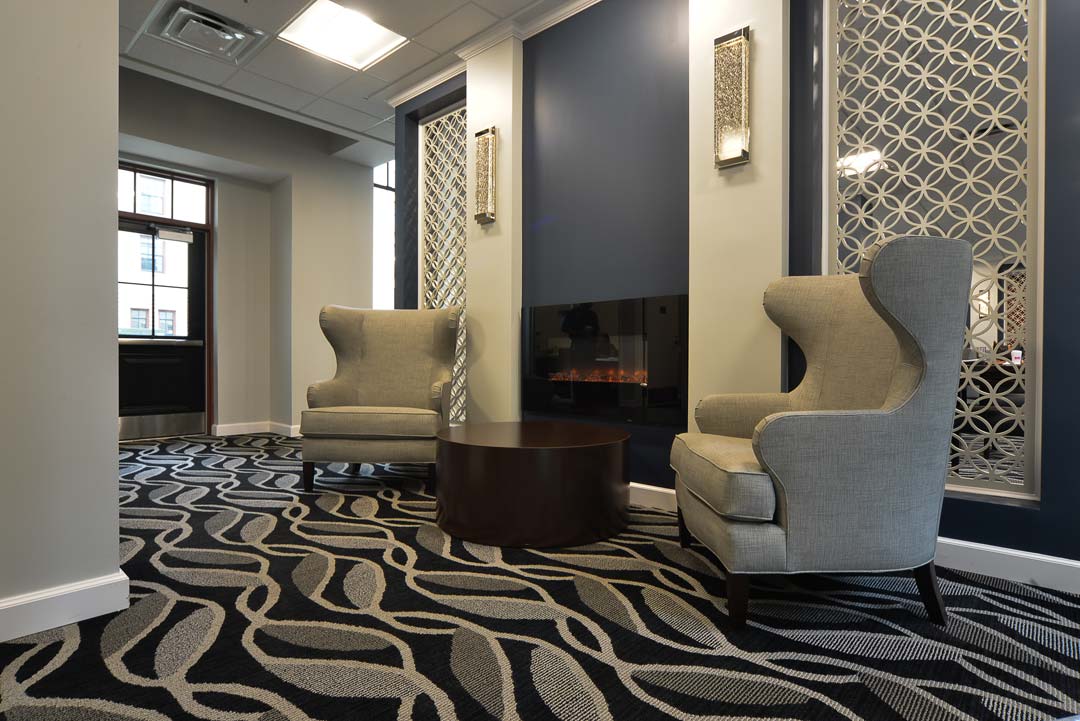
Building was home to many African American icons such as Duke Ellington. Photo credit: Jerome Foss, Foss Photography
The new tenants of the Rosenwald will reside in the same buildings that were once home to African American cultural icons like music producer Quincy Jones, jazz icon Duke Ellington, poet Gwendolyn Brooks, singer Nat “King” Cole, athlete Jesse Owens and boxer Joe Lewis. Photo credit: Jerome Foss, Foss Photography
Built in 1929, the building, known then as the Michigan Boulevard Garden Apartments, was the brainchild of the late Julius Rosenwald, the former president of Sears Roebuck & Company, after his friend, educator Booker T. Washington, suggested the need for high quality housing for African Americans who came to Chicago searching for economic opportunities.
Dowell was among the most instrumental in bringing a public and private partnership to fund the Rosenwald restoration. She said the re-opening of the Chicago landmark coincides with the 100th anniversary of the great migration of African Americans to the Chicago area. “What more befitting tribute to this time in history than a celebration of the restoration of the iconic and historic Michigan Boulevard Apartments,” Dowell said. “It opened 13 years after the great migration of African Americans escaping the horrors of racism in the south to cities like Chicago and New York. Rosenwald and Washington forged a relationship the Chicago defender called in 1932, ‘A ministry that revolutionized their age.'”
Rosenwald’s grandson, historian and author Peter Ascoli, said his grandfather would be proud. Remarking on Rosenwald’s drive from his home in Hyde Park to the Sears offices in North Lawndale, “He saw the conditions in which the residents here lived, and they weren’t very good,” Ascoli said. “He resolved that something ought to be done to make these conditions better. He would be incredibly proud to see what a fantastic job that’s been done here today.”Dowell talked of her work with the late Bobby Johnson, R.N., who was also instrumental in the re-development of the Rosenwald. “She was a Republican committeeman and I was the Democratic,” Dowell said. “But we agreed the Rosenwald should not be demolished.” The Bobby Johnson Memorial Lounge is dedicated to Johnson’s long and successful advocacy work to preserve and restore the development.
The new tenants of the Rosenwald will reside in the same buildings that were once home to African American cultural icons like music producer Quincy Jones, jazz icon Duke Ellington, poet Gwendolyn Brooks, singer Nat “King” Cole, athlete Jesse Owens and boxer Joe Lewis.
Of the 239 units, 120 are dedicated to senior housing, and the remaining 139 units are targeted for families.
Financing for the project is principally provided by the City of Chicago, Citi Community Capital, the Chicago Housing Authority, Credit Capital/The Richman Group, Bank Orion and the Federal Home Loan Bank of Chicago. The Chicago Housing Authority provided $17.3 million in capital funds and also rental assistance for 120 senior units. The City of Chicago support includes $25 million in Tax Increment Financing, an $8.5 million Neighborhood Stabilization Program loan, and allocations of federal and state tax credits. Credit Capital / The Richman Group are investing approximately $60 million in the redevelopment via historic and low income tax credit programs.
Rosenwald Developers is a shared venture between Iceberg Development, Goel Investments, RCAP LP, the Lightengale Group and Roos Enterprises, Inc.
SOURCE American Marketing Services

